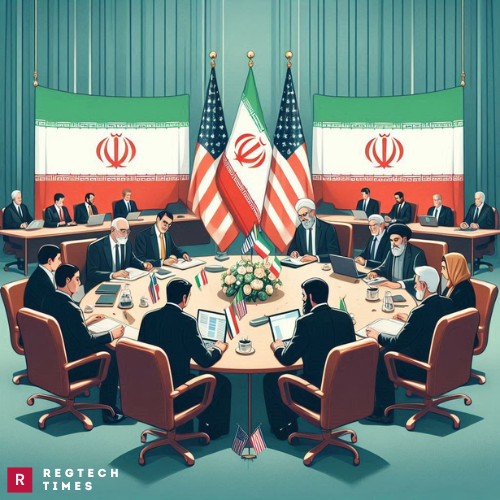As global tensions regarding nuclear proliferation continue to simmer, Iran has signaled a renewed willingness to engage in negotiations aimed at reviving the 2015 nuclear deal, officially known as the Joint Comprehensive Plan of Action (JCPOA). In a recent interview, Iranian Foreign Minister Seyyed Abbas Araghchi articulated the country’s readiness to embark on a new round of discussions, contingent on the cooperation of other involved parties. This diplomatic overture comes as Araghchi prepares for his upcoming visit to New York for the 79th United Nations General Assembly, where the backdrop of international diplomacy may provide fertile ground for dialogue.
The Nuclear Deal: A Fragile Framework
The nuclear deal was initially signed in July 2015, representing a significant breakthrough in international relations. Under the agreement, Iran committed to limiting its nuclear activities in exchange for relief from a wide array of economic sanctions that had hampered its economy. However, this delicate balance was disrupted when the United States unilaterally withdrew from the nuclear deal in May 2018, reinstating stringent sanctions that prompted Iran to gradually roll back its compliance. The subsequent negotiations, which began in April 2021 in Vienna, have yielded little progress since the last round concluded in August 2022, leading to heightened concerns about Iran’s nuclear ambitions.
Challenges Ahead for Diplomacy
In his recent remarks, Araghchi emphasized that Iran is prepared to start fresh negotiations related to the nuclear deal, highlighting the importance of mutual willingness among all parties involved. “We will actively seek to start a new round of negotiations on the nuclear issue. We can initiate these discussions during this trip,” he stated. This declaration reflects Iran’s acknowledgment of the need for diplomatic engagement, particularly in the face of an increasingly complex geopolitical landscape.
However, Araghchi was candid about the challenges that lie ahead. He noted that the current international conditions present obstacles that were not as pronounced in previous negotiation rounds. The backdrop of rising tensions in the Middle East, coupled with the ongoing fallout from the U.S. withdrawal from the nuclear deal, has created an environment where trust is in short supply. Araghchi’s acknowledgment of these hurdles suggests a realistic approach to the prospects of renewed talks, recognizing that mere willingness may not suffice to bridge the deep divides that exist.
Foreign Ministry: Recent Chamran 1 Satellite Launch Challenges Anti-Iran Sanctions
The Path Forward: Potential for Dialogue
One notable aspect of Araghchi’s statements was his dismissal of the possibility of direct discussions with U.S. Secretary of State Antony Blinken during his forthcoming trip. He cited an unsuitable environment for such meetings, a sentiment that reflects the persistent animosity between Tehran and Washington. Nonetheless, he expressed hope that direct talks could become feasible if the U.S. shifts its approach, indicating a potential pathway to constructive dialogue if conditions permit.
The revival of the nuclear deal hinges not only on Iran’s willingness to negotiate but also on the response of the United States and other parties to the agreement. The Biden administration has expressed a desire to return to the negotiating table, but significant differences remain. The main concerns involve the level of sanctions relief and the verification of Iran’s adherence to its nuclear commitments. The complexity of these negotiations is exacerbated by domestic political considerations in both Iran and the United States, where hardline factions may resist compromises.
As Araghchi prepares for his diplomatic mission, the global community watches closely. The outcome of renewed negotiations could have far-reaching implications not only for Iran but also for regional stability and international security. A successful revival of the nuclear deal would likely enhance cooperation among major powers, while failure to reach an agreement could lead to increased tensions and a potential arms race in the Middle East.
Iran’s willingness to restart negotiations related to the nuclear deal is a significant development in the ongoing saga of the JCPOA. While Araghchi’s statements reflect a hopeful inclination towards diplomacy, the path ahead remains fraught with challenges. Trust, verification, and a genuine commitment to dialogue will be essential in navigating these complex negotiations. As the world turns its attention to New York for the UN General Assembly, the prospects of peace and stability in the region may hinge on the outcomes of discussions that lie ahead.


